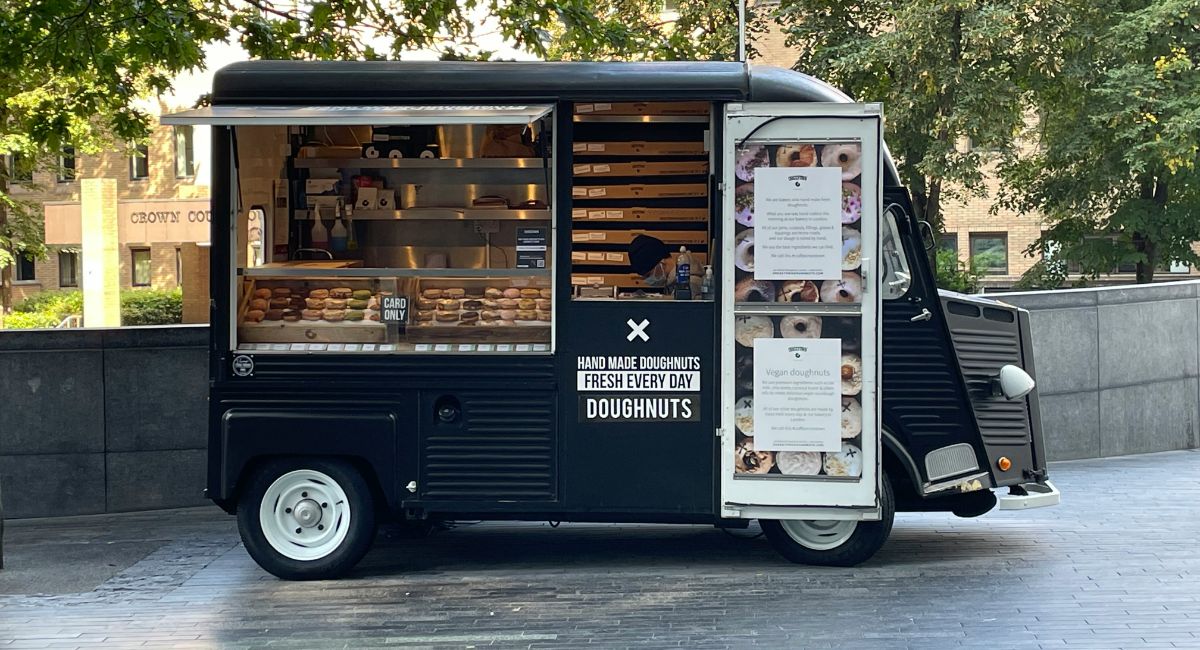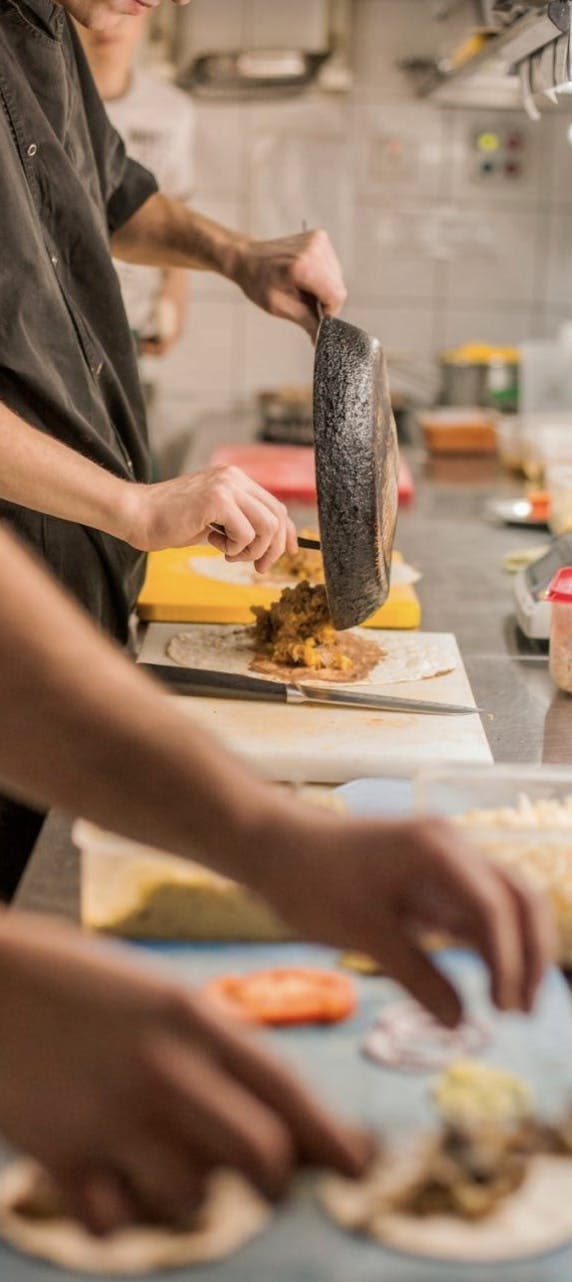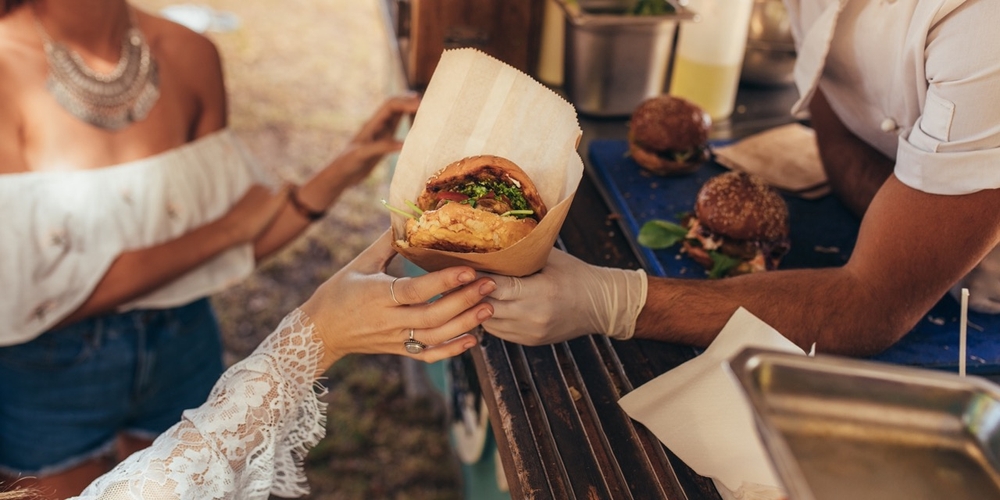Food licenses and permits you need in Texas
Table of Contents
CloudKitchens
How many tacos can be delivered from a 1000sqft restaurant?
The same amount as a 200sqft ghost kitchen.

Everyone knows Texas is the home of barbecue, chili con carne, and countless Tex-Mex favorites. The Lone Star State is also famous for its Southern cuisine, timeless American classics like Frito pie, and all kinds of beef recipes.
But, do you know the food license Texas requires to sell all of these delicious dishes? There are actually multiple—including a Food Handler’s License, Retail Food Establishment Permit, and Sales Tax Permit.
This quick guide will outline how to get these key documents to start serving hungry Texans. It will then close by offering a quicker workaround you can utilize to get your Lone Star State restaurant up and running sooner.
Getting a Food Handler’s License in Texas
Texas requires most food service employees to complete an accredited Food Handler Training Course within 30 days of obtaining a job. This license helps maintain public health safety standards in the Lone Star State’s restaurants, cafes, and eateries and is fairly simple to obtain.
There are dozens of certified Food Handler Training Programs sprinkled throughout every corner of the notoriously large state. You can also quickly obtain your license online from a variety of sources—including one of the country’s largest universities, Texas A&M. If you choose to do your license online, it should:
- Take less than two hours
- Cost a small, nominal fee
- Be printable immediately upon completion
Whether you do your license online or in-person, the contents of the course should be similar across the state and your certification will stay valid for two years. Some of the basic areas of study certified Food Handler Training Programs cover include:
- Food-borne illness
- Proper personal hygiene
- Suitable food storage methods—including time and temperature control
- Preventing cross-contamination
- Cleaning and sterilizing equipment and utensils
After all your employees complete their crash course in these subjects and obtain their Food Handler’s Licenses, you can move on to getting your Retail Food Establishment Permit.
Obtaining a Retail Food Establishment Permit in Texas
As a restaurant owner, you’ll need to get a license to open a retail food establishment before serving your first meal. This permit ensures your eatery is up to the state’s health and safety standards and, thus, fit for operation.
In Texas, this means complying with local ordinances governing:
- Building codes
- Plumbing
- Electrical
- Fire
- Zoning
In addition, you must meet the Department of State Health Services’ (DSHS) regulations regarding equipment standards and safe food preparation. Some of the highlights include:
- A three-compartment sink or a mechanized dishwasher
- Other conveniently placed handwashing sinks throughout the food prep area
- Employee restrooms which likewise feature handwashing sinks
- A service sink or cleaning area for mops
- Both hot and cold, pressurized water flowing from every faucet
- A proper sewage disposal system
- Adequate equipment for cooking, reheating, and holding food at safe temperatures
- Probe thermometers or other devices for measuring food’s internal temperatures and those within fridges and ovens
There are several other guidelines to adhere to before applying for your Retail Food Establishment Permit. Once your building is up to code, contact your city’s or county’s government office or the DSHS directly to apply for a permit. Before you do, however, you’ll also have to obtain a few other key pieces of documentation, including:
- A Certified Food Manager’s Certificate
- Food Handler Certification for all your employees
- A Tax ID Number
The last entry on this list—a Tax ID Number—is necessary for all businesses hoping to set up shop in The Lone Star State. Luckily, they’re fairly straightforward to obtain and, most of the time, completely free.
How to secure a Sales Tax Permit in Texas
You can obtain a Texas Tax ID Number by applying for a Sales Tax Permit through the state comptroller. Anyone who sells tangible property in Texas—including food and drinks—is required to get one.
Getting one is fairly simple, however, and you won’t even need a federal tax identification number to qualify. To get started, simply head to the comptroller’s Online Tax Registration Application and fill in the necessary information. There’s no associated fee, though in some instances you may be required to post a security bond to qualify.
In two to three weeks, your Sales Tax Permit should be approved and Texas will issue you a Tax ID Number. Be sure to keep the state up to date on any changes to your business and inform them if:
- Your restaurant moves addresses or gets a different phone number
- A new owner takes over
- You decide to close down
A Sales Tax Permit is perhaps the easiest piece of documentation you need to obtain before opening a restaurant in Texas as it requires no studying or payments. And, if you operate a ghost kitchen from CloudKitchens, it will be one of the only ones.
Open a ghost kitchen from CloudKitchens to expedite the permit process
Getting Texas food licenses and permits such as a Retail Food Establishment Permit takes time and money—especially bringing your space up to code and purchasing the right equipment to satisfy DSHS standards. Likewise, training staff in safe food handling and having them obtain Food Handler’s Licenses is another hurdle that can delay your opening.
To overcome these roadblocks and serve hungry Texans faster, don’t search for a traditional brick-and-mortar space to convert into your restaurant. Instead, choose a ghost kitchen from CloudKitchens and begin delivering delectable meals in a matter of weeks.
CloudKitchens are optimized to create delicious delivery food and boast the basic equipment, technology, and support you need to bring your mouthwatering offerings to your eaters.
We currently operate in The Lone Star State’s biggest metropolitan areas—including Houston, Austin, San Antonio, and Dallas–Fort Worth. Take a tour of a CloudKitchen near you and get started on the express path to opening your Texas restaurant!
Read More
- How to Secure a Food Handlers License in Fort Worth
- Tips on Securing a Food Handlers License in Houston, TX
- Tips on Securing a Food Handlers Permit in Dallas, Texas
- Tips on Securing a Food Handlers License in San Antonio
- Food Licenses and Permits You Need in California
Explore ghost kitchen locations across the US:
- Ghost kitchens in Seattle
- Ghost kitchens in San Francisco
- Ghost kitchens in LA
- Ghost kitchens in NYC
- Ghost Kitchens in Toronto
- Ghost Kitchens in Atlanta
- Ghost Kitchens in Dallas
- Ghost Kitchens in Chicago
- Ghost Kitchens in Denver
- Ghost Kitchens in Miami
| DISCLAIMER: This information is provided for general informational purposes only and the content does not constitute an endorsement. CloudKitchens does not warrant the accuracy or completeness of any information, text, images/graphics, links, or other content contained within the blog content. We recommend that you consult with financial, legal, and business professionals for advice specific to your situation. |
Sources:
- Texas Department of State Health Services. Licensing of Food Handler Training Programs. https://www.dshs.texas.gov/.
- Texas Department of State Health Services. Accredited Food Handler Classroom Training Programs. https://www.dshs.texas.gov/.
- Texas A&M. Online Food Handlers Course. https://foodsafety.tamu.edu/.
- Texas Department of State Health Services. FOOD HANDLER PROGRAM INITIAL / RENEWAL LICENSE APPLICATION. https://www.dshs.texas.gov/.
- Texas Department of State Health Services. Starting a New Retail Food Establishment under Department of State Health Services Jurisdiction. https://www.dshs.texas.gov/.
- Texas State Comptroller. Texas Sales and Use Tax Frequently Asked Questions. https://comptroller.texas.gov.
More insights & stories
There’s more where that came from.
Get in the know and check out our additional insights


